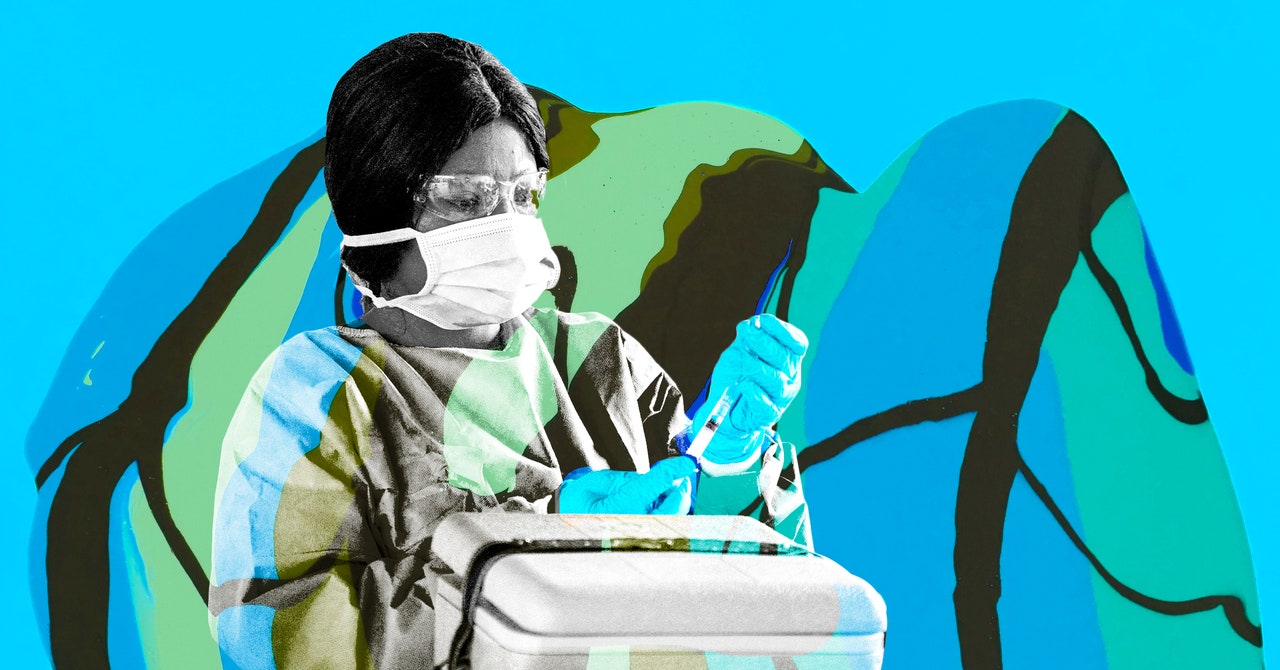
While rich countries hoarded doses, Covax, a joint initiative from several UN bodies formed to provide vaccines to poor countries, was supposed to be a knight in shining armor. Dreamed up at the beginning of 2020 by the heads of two Gates-funded nonprofits over scotch and nachos, Covax’s raison d’etre was to guarantee equal access to vaccines for all nations and to prevent the exact scenario the world is in right now. And at the year’s outset, the plans looked rosy: Over 190 countries had signed up to donate and receive vaccine doses through the initiative.
Then things began to go wrong. The initiative’s main supplier, the Serum Institute in India, which manufactures the Pfizer and AstraZeneca vaccines, couldn’t deliver on its promises; cases were skyrocketing domestically in March 2021, forcing it to pare back exports. Negotiations with vaccine makers like Moderna and Pfizer to sell doses to Covax became drawn out. Covax officials were forced to shift their goal of delivering 2 billion doses from this year to 2022. Despite its initial commitments, Covax expects to miss its target for 2021 by nearly a third.
But some think Covax was never going to meet its lofty goal. According to Venkatapuram, in early 2021, Covax officials were putting out PR statements to hide what was really going on behind the scenes. “They were using their communications to essentially speak to rich country leaders and rich countries, and to try to get them to join and cooperate, while not giving us a really good indication of the kind of precarious situation that we were in,” he says.
A spokesperson for Gavi, the nonprofit that oversees Covax, challenged this characterization, telling WIRED by email that “despite constant shifts in regulatory timelines, available doses, and other factors, Covax has always maintained regular communication with participating economies including with respect to changes in supply volumes, schedules and timelines.” (The organization typically does not release the names of spokespeople.)
As vaccine shipments failed to materialize, ambassadors of vaccine-poor countries were desperately contacting Covax to find out when they could expect their share. Rahman says she and her colleagues questioned Covax heads: When were vaccines coming for, say, Senegal? And, she recalls, they would respond with something like: “There are many moving parts.” “I’ve started to despise this phrase of ‘there are many moving parts,’ because to me it means they don’t know what’s going on,” she says.
Rahman feels that those overseeing Covax weren’t coordinating with the authorities in the very countries they were trying to send vaccines to. Indeed, due to failure to consult adequately, many poor countries were forced to throw out thousands of expired doses for lack of the infrastructure required to store and transport them. If they had properly communicated with local authorities on the ground in these countries, this could have been avoided, says Rahman. “It’s just sort of a colossal clusterfuck, of not being organized in terms of indigenous knowledge.”


